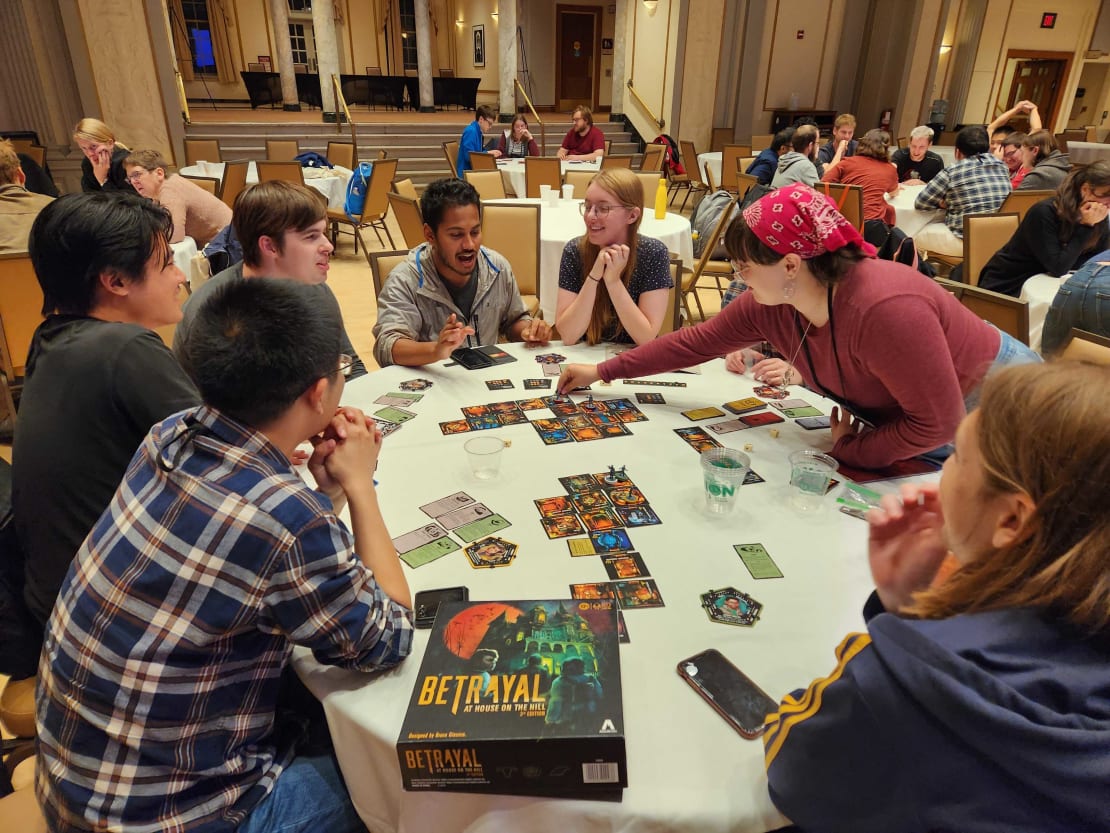
More than 250 participants took part in the fall IceCube Collaboration meeting, which wrapped up last week in Madison, Wisconsin. Hosted by the Wisconsin IceCube Particle Astrophysics Center (WIPAC) at the University of Wisconsin–Madison (UW–Madison), the meeting ran from September 23 through September 27. The collaboration meets in Madison every two years in the fall.

Before the official start of the collaboration meeting, a number of pre-meetings were held to discuss the latest updates with IceCube-Gen2 and the IceCube Upgrade. During the IceCube-Gen2 session, a world café was held where collaborators had a chance to discuss different topics ranging from communications and diversity, equity, and inclusion to quantum computing and sustainability. To end the day, an IceCube Art Night was held where participants got a chance to paint their very own version of the IceCube Lab.


The official meeting kicked off with opening remarks from new WIPAC director Dan Hooper, UW–Madison’s Senior Associate Vice Chancellor for Research Cynthia Czajkowski, and National Science Foundation Program Director of Particle Astrophysics William Wester.
Later in the week, there were discussions and talks presenting activities and updates on the IceCube Upgrade, IceCube-Gen2, software, calibration, and education and outreach. The meeting also included presentations on results of the latest IceCube analyses, such as neutrino oscillations, neutrino sources, physics beyond the Standard Model, and cosmic rays.
Besides the science talks and discussions, there were plenty of activities and events for community building and fun, including board game night, a visit to the Madison Museum of Contemporary Art, a speed-networking session, and a banquet. There were also special lunches for early career scientists, women and gender minorities, and LGBTQ + allies to chat and mingle in a safe space.


Later in the week, a special event was held at the Madison Metropolitan School District Planetarium where former winterovers Marc Jacquart and Hrvoje Dujmovic gave a public talk on their experiences at the South Pole, which was then followed by a viewing of “Chasing the Ghost Particle.”

At the conclusion of the meeting, IceCube spokesperson Ignacio Taboada thanked the people who helped keep the IceCube Lab up and running 24/7 and the local organizing committee. This collaboration meeting also marked the last meeting for Ignacio Taboada as spokesperson, whose final term will end in April of 2025.
“It was exciting to have more than 250 people register for the meeting,” says Albrecht Karle, UW–Madison professor and member of the local organizing committee. “The energy level was great and excellent discussions took place about the Upgrade to be deployed next year and IceCube-Gen2 beyond that.”
The next collaboration meeting will take place on May 12-16, 2025, at Uppsala University in Uppsala, Sweden.